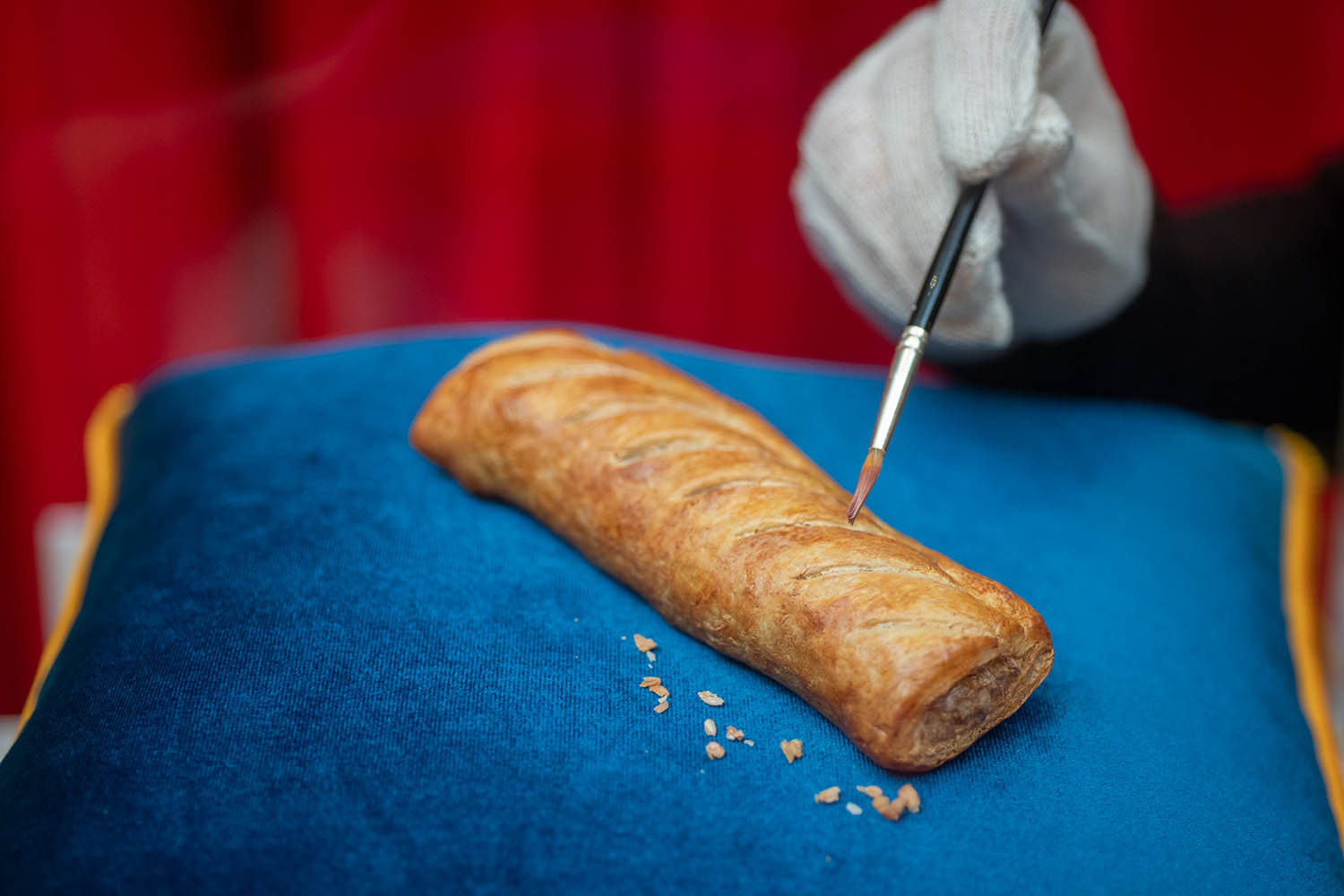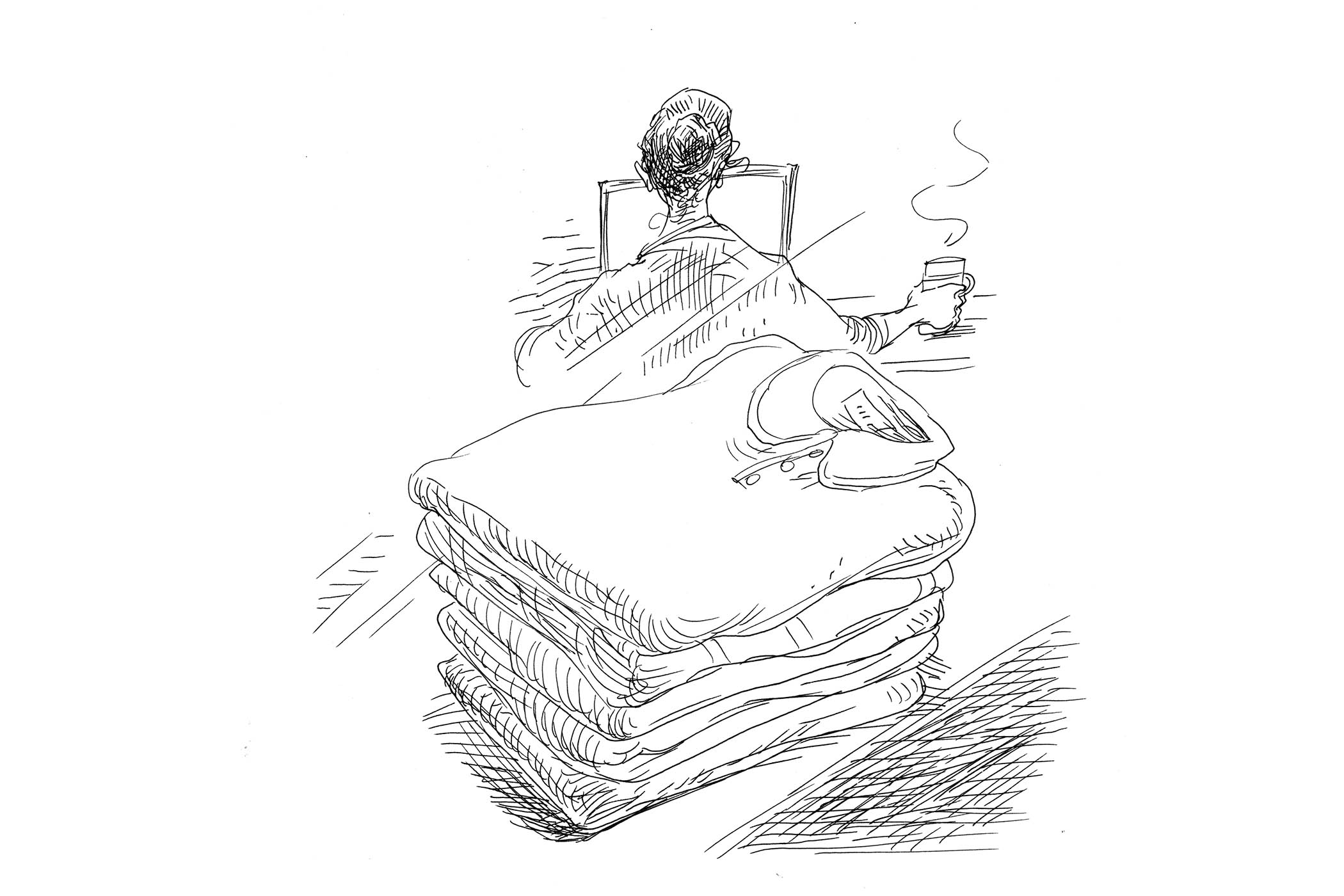The news that the Greggs sausage roll is to be immortalised in the “culture capital” section of Madame Tussauds, where it will sit on a “regal” blue velvet cushion in the company of Princess Diana and Stormzy, has been greeted with a certain amount of amusement by the media – and I must admit to finding it quite funny myself.
When I read that the museum’s “artists have put in numerous hours to capture every detail of this popular menu item”, I pictured skilled artisans with tiny paint brushes peering with utmost seriousness at Britain’s favourite lunchtime snack, the earnestness of their demeanour only increased by their desperate struggle to ignore their tastebuds, now loudly crying out for warm pastry.
But I long ago learned not to be snobbish about Greggs, a rare success story among the economic rubble of Britain. In 2019, I went to Newcastle, where the company has its HQ, to investigate its astonishing success (last year, the baker made a pre-tax profit of more than £200m on sales of more than £2bn). At the time, I’d never eaten anything from Greggs, a fact that delighted Roger Whiteside, its then chief executive (perceptions of Greggs were changing, and he saw in me a new customer). But ever since I’ve been, if not exactly a regular, then one of its more unlikely defenders.
Whenever I see the logo, I am suffused with warmth and the sense of a miracle
Whenever I see the logo, I am suffused with warmth and the sense of a miracle
Everything I learned on that visit delighted me, from the company’s history (it began life in 1939, when a Newcastle man called John Robson Gregg started selling eggs and yeast door to door on his bicycle), to the way it treats its staff (it operates a generous profit share scheme), to its respect for local tastes (in the north-east, it sells stotties; in London, Tottenham cakes).
A Greggs bacon bap, made to order with your choice of sauce, is one of the most morale-boosting treats a person can have ahead of yet another depressing train journey. Obviously, I don’t agree with the society decorator Nicky Haslam, who once declared its coffee to be “the best” (there are limits). But whenever I see its logo, I’m suffused with warmth and the sense of an ongoing miracle: something that actually works, when so much else is broken.
If you’re still missing The White Lotus, I recommend Mountainhead, a film written and directed by Jessie “Succession” Armstrong now streaming on TV. Armstrong’s new set of fabulously rich monsters comprises four tech bros, who are weekending in a spectacularly antiseptic mountain-top retreat as the world burns thanks to disinformation churned out by AI on a platform that one of them owns.
It’s very funny, and very nasty. Scrolling their phones, they learn of widespread “genocide-proximate” attacks and multiple nations defaulting on their debts. But no matter. The Earth is just a starter planet, they have as many sliders as they can eat for dinner (and a turbot for “picking”), and their thoughtful host has arranged special “little whisky plinths” for the bottles they’ll drink when they play poker.
I feel quite private about the fact that I have cancer. As a friend put it, while lavish presents are most welcome, I don’t want to be squirted all over with pity. But the trouble is that I’m a writer: like Nora Ephron (I wish), for me (almost) everything is copy. I will keep outing myself, and making inappropriate jokes.
When my consultant first went through the list of internal organs that would have to go, I was moderately unruffled. Through my mind a ticker tape was already running, a paragraph that began: “This is like the Generation Game conveyor belt… Please let me keep the Teasmade!”
Images courtesy of Greggs/ Madame Tussauds
Newsletters
Choose the newsletters you want to receive
View more
For information about how The Observer protects your data, read our Privacy Policy



